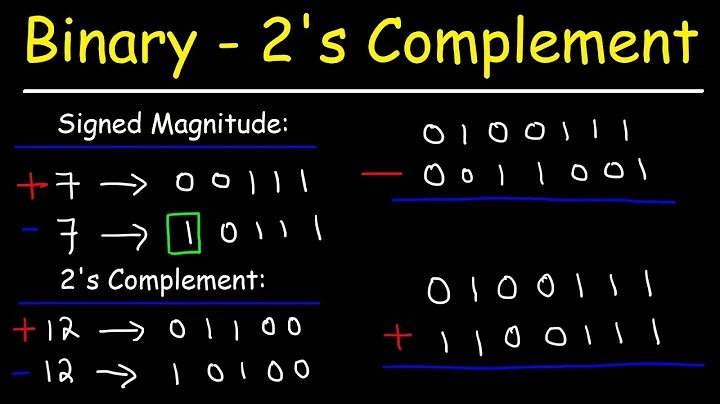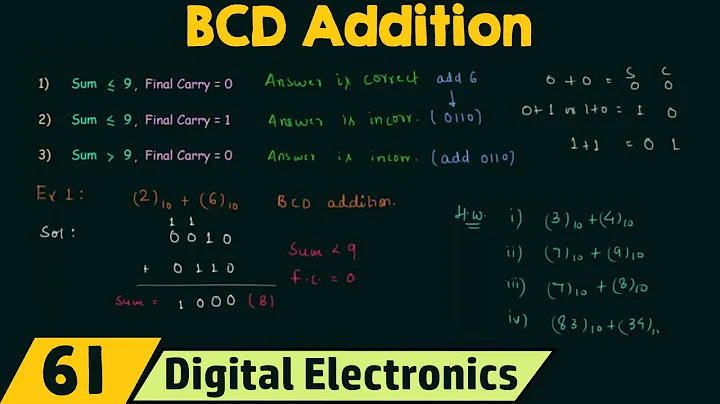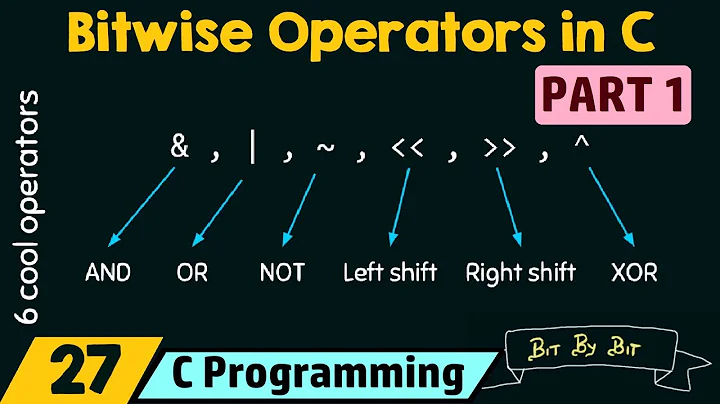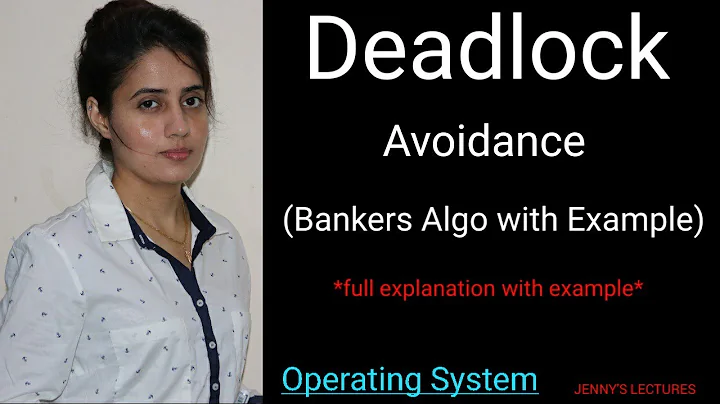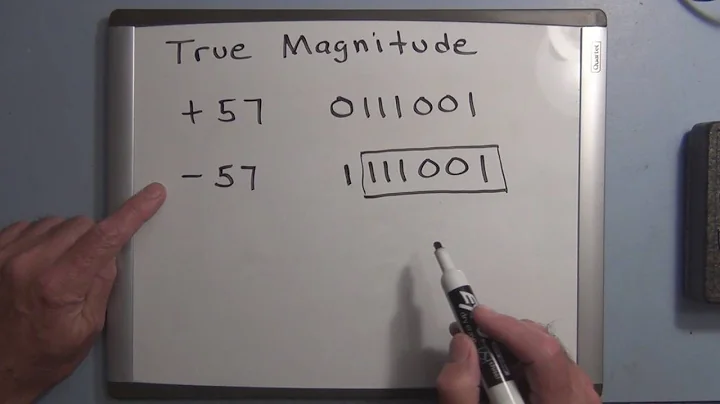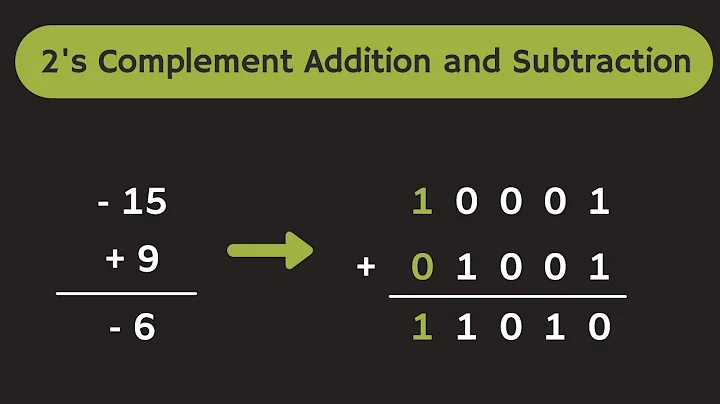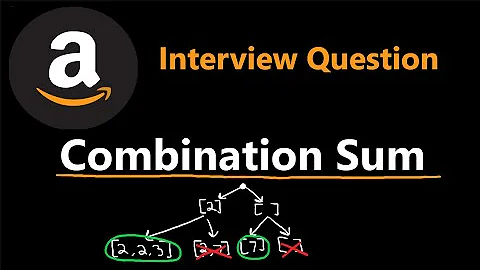Are 'addition' and 'bitwise or' the same in this case?
Solution 1
as long as for two numbers num1 and num2 applies num1 & num2 == 0, then follows:
num1 + num2 == num1 | num2
the reason for this is, that addition is basically a bitwise XOR, plus carry bit. But as long as there are no carry bits (num1 & num2 == 0) then addition boils down to bitwise XOR, which is (again because of num1 & num2 == 0) in this case logically equivalent to a bitwise OR
Solution 2
No:
num3 + num3 => 0x000001FE
num3 | num3 => 0x000000FF
Of course, as long as you ensure that you only add things together where you know that they don't have the same bits set, you should be safe.
Solution 3
Yes, as (seen bitwise) 0+1 is the same as 0|1. The only difference is 1|1 (=1) vs. 1+1(=0b10), i.e. create a 0 and having overflow, affecting the bits to the left).
So in your case both are equivalent. But you should go to the safe side and choose the less error-prone one.
Solution 4
As long as you're not doing something like num3 + num3, yes.
Solution 5
Whenever the bitwise addition adds more than one 1 (either because the sources have them, or the carry from another place is 1 too), then a carry is produced and one place affects the other. As long as in an addition there is at most one 1 added, things are the same as bitwise or.
This can also be seen when we look at the adder circuits (http://en.wikipedia.org/wiki/Adder_%28electronics%29), where when no carry is produced, all elements taking part in the circuit are the "or" elements.
Related videos on Youtube
Albus Dumbledore
For most of my time I do programming stuff, but I like math, too, especially if it’s got a more applied nature. I love jazz music and action-packed thrilling books, where the good guys are noble and able, but sound self-deprecating, and always think coolly and clearly. Most of all, however, I like video games with compelling atmosphere, innovative design and great eye for detail. I am best at Java, but I also have experience with C++, Python, Ruby, Visual Basic, Pascal, ActionScript and PHP. I have some idea of functional programming, too, as I’ve done some good amount of projects in Matlab and Mathematica. I prefer simpler code, but I am not too scared to go deep, if it’s the only option. My love for books and mobile devices has leaded me to making my own ebook reader: The AlbiteREADER. One can find free ebooks there, too. It’s a big thing for me, for I’ve been making the app for over four months. As far as math is concerned, I don’t like it raw, but prefer it in connection with other sciences, i.e. numerical analysis, discreet math, statistics, biomathematics, etc. I’ve done some good amount of math projects with Matlab and Mathematica. I’ve also had the chance to teach biomath as an assistant, i.e. I was responsible for the demonstrational part of the subject. In relation with that, I can say, I wrote some good quantity of Mathematica code and some lesser amount of mathematical stuff.
Updated on June 04, 2022Comments
-
 Albus Dumbledore 5 months
Albus Dumbledore 5 monthsSay I have four 32-bit numbers, defined so that their bits don't overlap, i.e.
unsigned long int num0 = 0xFF000000; unsigned long int num1 = 0x00FF0000; unsigned long int num2 = 0x0000FF00; unsigned long int num3 = 0x000000FF;Where in each number one could have anything in the place of the
FFs.Am I right in saying that addition and bitwise or would always produce the same output for such sort of numbers?
Thanks!
-
 fredoverflow about 11 yearsAs a third alternative, you could also use exclusive-or, that is, the
fredoverflow about 11 yearsAs a third alternative, you could also use exclusive-or, that is, the^operator. -
 starblue about 11 yearsBut note that if you want to combine such numbers into one it is good style to use
starblue about 11 yearsBut note that if you want to combine such numbers into one it is good style to use|.
-
-
 Evan Teran about 11 yearswouldn't it be more accurate to say that addition is a bitwise
Evan Teran about 11 yearswouldn't it be more accurate to say that addition is a bitwiseXORplus a carry? -
 Albus Dumbledore about 11 yearsSorry, I forgot to implicitly exclude this case.
Albus Dumbledore about 11 yearsSorry, I forgot to implicitly exclude this case. -
 not-a-user almost 9 yearsAnd because you will forget it again next time (everyone does) always use
not-a-user almost 9 yearsAnd because you will forget it again next time (everyone does) always use|for logical expressions. - In contrast to when you are really calculating, i.e. in cases where, say, the decimal representation also makes sense. -
 Kyle Delaney over 4 yearsIs one faster than the other?
Kyle Delaney over 4 yearsIs one faster than the other? -
 Andreas Grapentin over 4 years@KyleDelaney the answer to that question does not fit into a comment box :)
Andreas Grapentin over 4 years@KyleDelaney the answer to that question does not fit into a comment box :)
